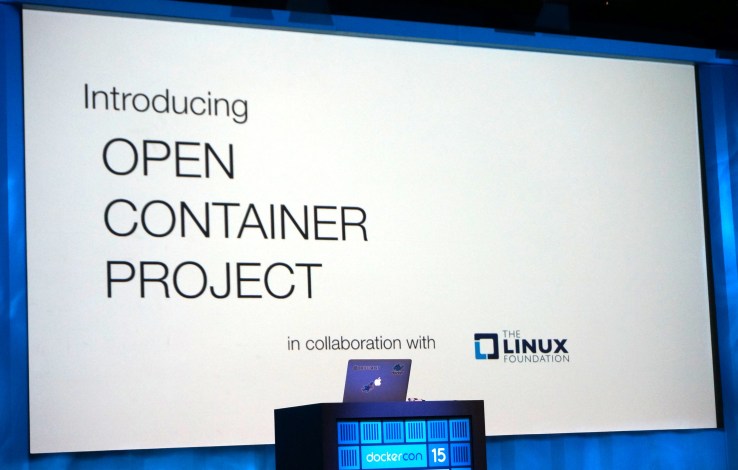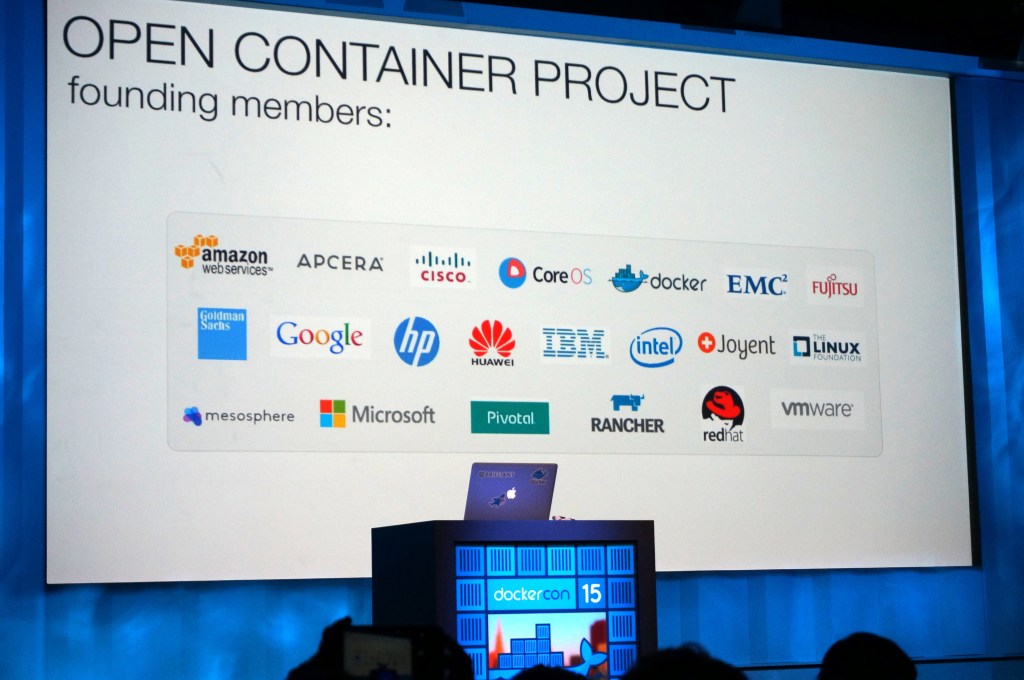Docker, CoreOS, Google, Microsoft, Amazon and others come together to develop common container standard
- Ngoc Huynh

Docker, CoreOS, Google, Microsoft and Amazon are now working on a new standard for software containers with the help of the Linux Foundation. Other members of this coalition include Apcera, Cisco, EMC, Fujitsu Limited, Goldman Sachs, HP, Huawei, IBM, Intel, Joyent, Mesosphere, Pivotal, Rancher Labs, Red Hat and VMware — that is, virtually everybody who has a stake in building a thriving container ecosystem.
Docker may have become synonymous with containers, but it’s not the only container format around and not everybody agrees that it should become the standard format. Last December, CoreOS announced that it was launching its own container runtime (rkt) and format (appc), a project that received some support from major players like Google, Red Hat and VMware.
At the time, Docker and CoreOS looked like they were on a collision course, and having even more container formats wasn’t likely going to help the overall ecosystem.

Now, however, the two companies are going to work together with other stakeholders on the Open Container Project (OCP), which will be housed under the Linux Foundation. The OCP is a nonprofit organization that is “chartered to establish common standards for software containers.”
The Docker container format and runtime will form the basis of the new standard, and Docker is donating both the draft specifications and the code around its image format and runtime engine to get the project started.
The main idea here is that developers should be able to package their applications in a container and be confident that it will run in any runtime, whether that’s Docker, CoreOS’s rkt, or projects like Kurma or Jetpack. That standard should be vendor neutral and development should happen out in the open.
“With the announcement of the Open Container Project, Docker is telling the world that they are open to this discussion,” CoreOS founder and CEO Alex Polvi writes. “Today Docker is the de facto image format for containers, and therefore it is a great place to start as a standard. We still feel that there are many technical issues in the existing Docker format, but having a neutral seat at the table will help address these for the industry overall.”
For Docker, this means giving up a bit of control, too. “After receiving feedback from the community, partners and customers, we believe the timing is right to create a common standard that would ensure compatibility and encourage innovation throughout the ecosystem,” said Solomon Hykes, founder and creator of the Docker open source initiative, in a statement today.
It’s worth noting that Docker’s business model in the long run isn’t so much bound to a container format but instead is about building tools for managing container deployments. While the company is obviously interested in shepherding the future of software containers, its main interest is in establishing a vibrant ecosystem around this idea. Having a broad coalition of companies involved in creating a single container standard will allow it to fulfill this mission in the long run.
Source : http://techcrunch.com/
